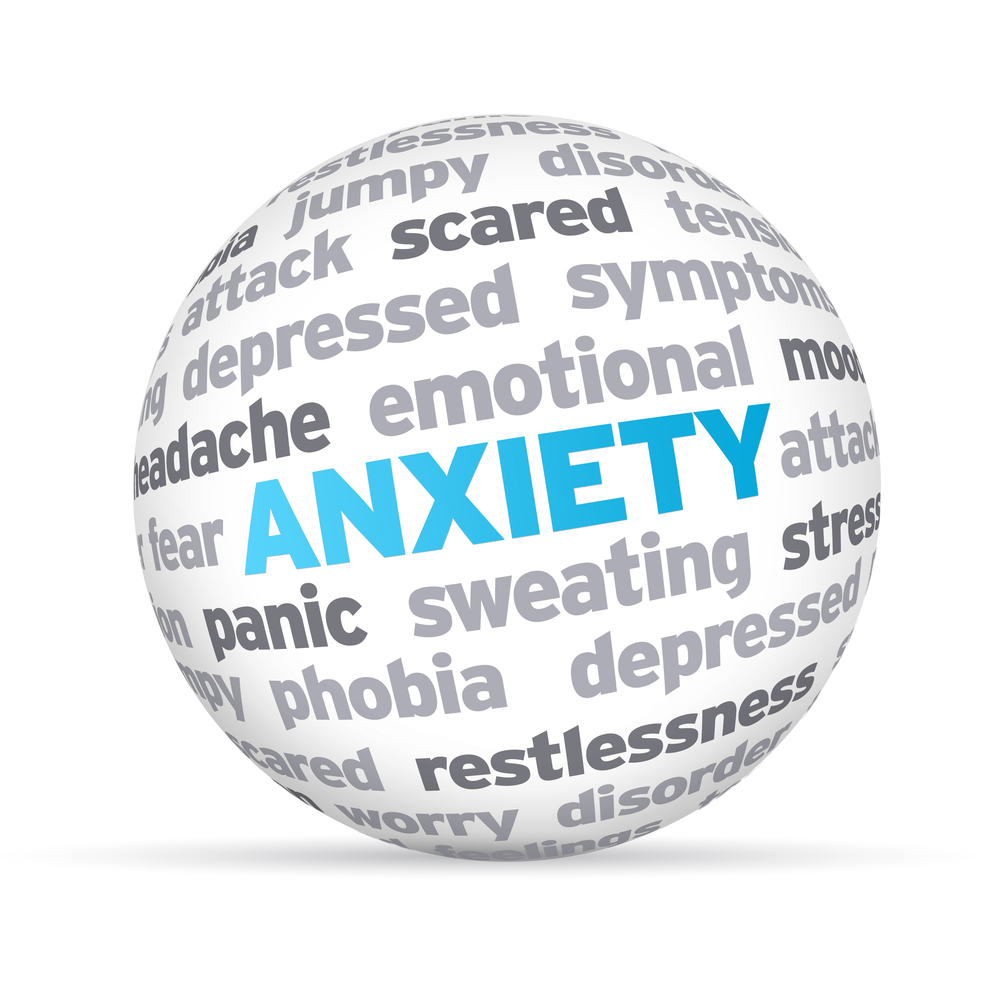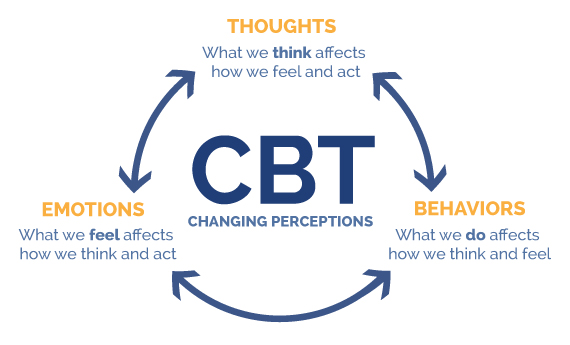Find peace and clarity with trusted counseling services for anxiety
Find peace and clarity with trusted counseling services for anxiety
Blog Article
Exploring Different Strategies in Counselling for Anxiousness Condition for Enduring Change
When tackling anxiety disorders, it's important to discover a range of counseling techniques. Each technique offers one-of-a-kind understandings and devices to help you handle your signs efficiently. You might locate that integrating strategies can produce the ideal results. However, recognizing the nuances of these techniques is essential to promoting long-term adjustment. What if the ideal mix could launch a brand-new level of emotional well-being for you?
Comprehending Anxiety Conditions: A Short Introduction
Anxiousness conditions, which influence numerous individuals worldwide, can substantially influence life. You may experience frustrating sensations of anxiety or worry that appear uncontrollable. These sensations can cause physical symptoms like a racing heart, sweating, and even lightheadedness. Common types of stress and anxiety problems include generalized stress and anxiety problem, panic disorder, and social anxiety condition. Each has unique indicators, however they all share a tendency to disrupt your regular and relationships.Understanding the origin of your anxiousness is essential. It may originate from genes, brain chemistry, or life experiences. Identifying your triggers can aid you manage your reactions better. It is essential to bear in mind that you're not alone in this struggle. Lots of people deal with similar challenges, and seeking help is a strong action towards feeling much better. By finding out about anxiety problems, you're currently on the course to understanding and managing your problem more successfully.
Cognitive-Behavioral Therapy: Challenging Adverse Idea Patterns
In Cognitive-Behavioral Treatment, you'll start by identifying the negative thought triggers that contribute to your anxiety. When you identify these thoughts, you'll work with changing them with more favorable alternatives. Together, you'll construct effective coping approaches to aid handle your stress and anxiety in daily situations.
Recognizing Unfavorable Thought Triggers

When you come across moments of distress, identifying the particular triggers behind your adverse ideas can be necessary in handling stress and anxiety. Beginning by focusing on scenarios that provoke sensations of concern or worry. Is it a congested room, a future target date, or a conversation with particular individuals? Write these circumstances in a journal. This will help you recognize patterns in your thinking. Notice physical feelings that accompany your unfavorable ideas, like a racing heart or tightness in your chest. By determining these triggers, you acquire insight right into what's sustaining your stress and anxiety. Recognizing these connections is the primary step in challenging those thoughts and inevitably restoring control over your psychological reactions.
Changing Thoughts With Positives
Challenging adverse thought patterns is a crucial action in transforming your mindset and lowering anxiousness. You might commonly discover on your own trapped in cycles of insecurity or disastrous reasoning. Rather than letting these thoughts dictate your sensations, technique changing them with favorable affirmations or realistic alternatives. When you believe, "I can not manage this," change it to, "I can handle challenges one action at a time." This easy modification can significantly affect your emotional state. Consistently determining and countering these unfavorable thoughts aids produce a healthier inner dialogue. Remember, it takes some time and initiative, however regularly exercising this method can bring about enduring modification, equipping you to face stress and anxiety with restored self-confidence and durability.
Structure Coping Approaches Together
Replacing unfavorable ideas is just the beginning of taking care of anxiety efficiently. To create long-term adjustment, you need to construct coping approaches that empower you. Cognitive-Behavioral Therapy (CBT) aids you determine and test those unhelpful idea patterns. With each other, you and your counselor can explore just how these thoughts effect your feelings and behaviors.Start by establishing useful techniques, like journaling or mindfulness exercises, that allow you to face stress and anxiety head-on. When you encounter your fears gradually, you'll learn to respond in different ways.

Mindfulness and Acceptance-Based Approaches: Cultivating Present-Moment Awareness
As you browse the intricacies of anxiousness, including mindfulness and acceptance-based methods can significantly enhance your ability to cultivate present-moment awareness. By concentrating on the present moment, you'll locate that you can observe your ideas and feelings without judgment (Counseling services for anxiety). This method helps you acknowledge your stress and anxiety without really feeling overwhelmed by it.Engaging in mindfulness exercises, such as deep breathing, body scans, or led reflections, enables you to ground on your own in your current experience. Acceptance-based approaches encourage you to embrace your emotions as opposed to fight versus them. When you accept your sensations, they shed their power over you.Incorporating these techniques into your daily routine can change just how you react to anxiety. You'll create resilience and find out to navigate stressful circumstances with better convenience. Ultimately, growing present-moment awareness lays the structure for lasting modification, empowering you to lead an extra meeting life
Exposure Therapy: Facing Concerns Progressively
Direct exposure therapy assists you challenge your worries in a gradual method, making it much less frustrating. You'll find out techniques to face anxiety-provoking circumstances detailed, while also building coping methods to handle your responses. This method equips you to take control and reduce anxiousness over time.
Progressive Exposure Strategies

When facing anxiousness, progressively challenging your concerns can be an effective way to restore control. This technique, called gradual exposure, includes slowly subjecting yourself to the situations or objects that trigger your anxiety. Beginning with less daunting circumstances and progressively work your way approximately more difficult ones. As an example, if you're scared of public talking, you may begin by speaking in front of a mirror, then progress to sharing thoughts with a friend, and eventually deal with a small team. Each step aids desensitize you to the fear, developing your confidence over website time. Remember, it's crucial to pace on your own and celebrate tiny triumphes as you move through this procedure, reinforcing your capability to handle anxiety successfully.
Structure Coping Techniques
Building efficient coping techniques is necessary for managing anxiety, especially as you challenge your concerns slowly - Counseling services for anxiety. One effective technique is direct exposure therapy, where you start by facing your anxieties in a controlled fashion. Start with less intimidating scenarios and gradually work your way up to more challenging situations. This gradual direct exposure helps desensitize you to anxiety triggers, making them less overwhelming.Incorporate relaxation techniques, such as deep breathing or mindfulness, to soothe your mind throughout exposure. Track your development, celebrating small success along the road to enhance your self-confidence. Keep in mind, it's okay to take your time; the goal isn't perfection yet consistent enhancement. By developing these approaches, you'll equip on your own to navigate anxiety and embrace life much more totally
Psychodynamic Therapy: Revealing Origin Causes of Stress And Anxiety
Psychodynamic treatment discovers the unconscious mind, exposing the origin of your anxiety. By analyzing your thoughts, sensations, and previous experiences, this technique aids you discover underlying conflicts and unsettled concerns that may contribute to your existing anxiety. You'll collaborate with a therapist to explore youth experiences, partnerships, and psychological patterns that shape your responses today.As you gain insight right into these much deeper layers of your psyche, you'll start to identify how previous events influence your existing actions. This understanding can result in catharsis, allowing you to process emotions you could have suppressed.Through the therapeutic connection, you can likewise recognize defense systems that may have created in time, offering a clearer course to change. Ultimately, psychodynamic treatment furnishes you with the tools to resolve your anxiousness at its core, promoting enduring transformation in your psychological wellness.
Integrative and Alternative Strategies: Combining Techniques for Greater Efficiency
Integrating numerous therapeutic strategies can improve your journey towards managing anxiety better. By combining aspects from cognitive-behavioral treatment, mindfulness methods, and all natural approaches, you can create an individualized strategy that addresses your distinct needs. For example, you could utilize cognitive-behavioral strategies to test unfavorable thought patterns while including mindfulness workouts to ground on your own in today moment.Additionally, discovering all natural practices such as yoga or meditation can promote leisure and decrease stress and anxiety symptoms. This blend allows you to create higher self-awareness and resilience.Experimenting with these diverse approaches can help you discover what reverberates most with you. Bear in mind, it has to do with finding a harmony that works, rather than staying with a single approach. This integrative technique not just provides prompt alleviation but likewise cultivates lasting skills for handling anxiety, equipping you to recover control over your life.
The Role of Support Systems: Structure Strength With Connection
While it could appear that handling stress and anxiety is a solitary journey, having a solid support group can play a crucial function in your strength. Surrounding on your own with empathetic good friends, family, or support groups creates a safe area where you can openly share your feelings and experiences. When you get in touch with others, you advise on your own that you're not the only one in this struggle.These relationships provide encouragement and can provide sensible coping strategies that have actually benefited others. It's likewise a possibility to acquire perspective; pals can assist you see circumstances in a different way, reducing sensations of isolation.Moreover, psychological support cultivates a feeling of belonging, which can significantly alleviate stress and anxiety symptoms. By leaning on your support group, you can develop strength and take on difficulties better. Bear in mind, connecting for assistance signifies toughness, and it can make all the difference in your journey toward taking care of anxiousness.
Frequently Asked Inquiries
What Are the Typical Signs And Symptoms of Anxiousness Disorders?
You might experience restlessness, exhaustion, problem focusing, irritation, muscle mass stress, and sleep disturbances. Physical signs and symptoms can include quick heartbeat, sweating, and shivering. Identifying these indicators early can assist you look for proper support and treatment.
How Much Time Does Treatment Normally Last for Anxiousness Disorders?
Therapy for stress and anxiety problems typically lasts anywhere from a couple of weeks to several months. It truly depends on your private needs, progression, and the methods your specialist uses to aid you manage your stress and anxiety properly.
Can Medicine Be Made Use Of Alongside Treatment for Anxiousness?
Yes, drug can most definitely be used along with treatment for anxiety. Incorporating both methods frequently improves treatment performance, aiding you handle signs while discovering underlying concerns with counseling (Counseling services for anxiety). Always consult your doctor for customized advice
Exist Self-Help Techniques for Handling Anxiety?
Yes, there are several self-help approaches for managing anxiety. You can practice mindfulness, participate in normal workout, maintain a balanced diet plan, develop a routine, and make use of deep breathing techniques to help in reducing anxiousness signs properly.
Just how Do I Know if I Required Specialist Assistance for Stress And Anxiety?

Report this page